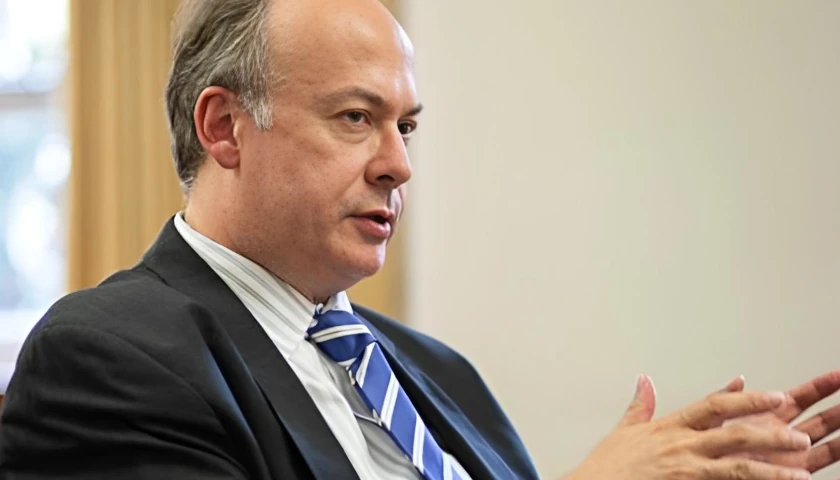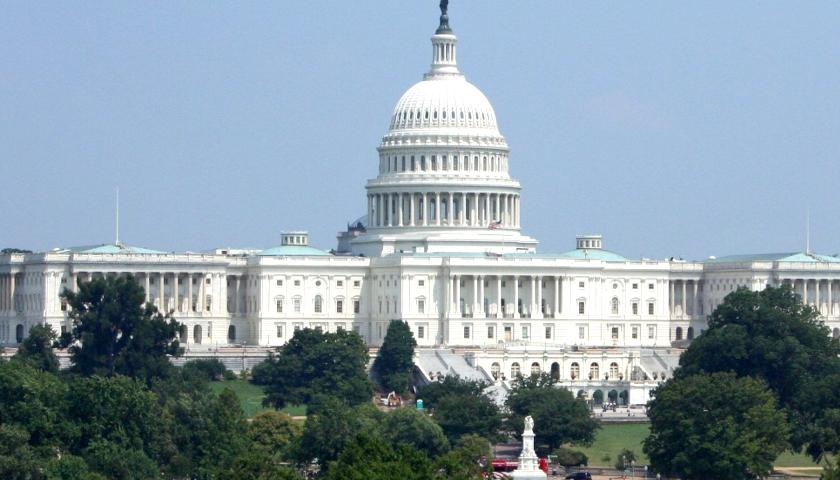Former Trump administration DOJ official Jeffrey Clark is appealing the recommendation of a disciplinary panel to suspend his law license for two years over his role assisting Trump in dealing with 2020 election irregularities. A three-member committee of the District of Columbia Board on Professional Responsibility found on August 1 that he breached broad and vague attorneys ethics rules by drafting a letter that was never sent to Georgia officials advising them of their options for handling the 2020 election problems.
In response, Clark filed a Petition for Review with the District of Columbia Court of Appeals on August 7, requesting consideration of his interlocutory appeals. Interlocutory appeals are appeals conducted while other proceedings are still ongoing.
The D.C. Bar’s position has been that the question of immunity must be determined at trial — but Clark argued that immunity means he cannot be tried at all, that is why he is attempting to halt the process with interlocutory appeal.
Much of Clark’s argument comes down to three types of immunity. He believes the recent Supreme Court ruling on presidential immunity in Trump v. United States provides him with a new third type of immunity that has yet to be considered in the proceedings. America First Legal filed an amicus curiae brief in his case last month going over how that ruling also applies to Clark as Trump’s attorney and one of his officials advising him. It would provide Clark with absolute immunity.
Clark said in his Petition for Review that the proceedings cannot continue until the court has ruled on how that decision applies to his case. The entire criminal case against Trump in Special Counsel Jack Smith’s case against him in D.C. was put on hold while the Supreme Court decided the issue of immunity. Similarly, Clark said his case must be put on hold until it is established how that immunity applies to him.
Clark said before Trump v. United States was issued, the D.C. Bar attempted to “reach testimonial/documentary issues that intrude into the Executive Branch,” such as Clark’s personal conversations with Trump.
The second type of immunity Clark believes he is entitled to is prosecutorial immunity, which is also absolute. Clark used prosecutorial powers to investigate the 2020 election.
The third type of immunity Clark argued that applies is what protects a presidential advisor, which is qualified immunity.
His appeal also includes objecting to various orders that denied his immunity claims.
Additionally on August 7, Clark filed a Motion to Strike with the hearing committee. He asked to strike all the evidence that had been submitted in the case, alleging that it violated the ruling in Trump v. United States. His motion argued, “Mr. Clark is likewise immune because all of his charged conduct was within the scope of the President’s ‘conclusive and preclusive’ authority under the Take Care Clause and because absolute prosecutorial immunity is also implicated here (as explained in the contemporaneous Reply Brief we are also filing today). The ‘exclusive’ and ‘preclusive’ aspects of this holding ‘exclude’ and ‘preclude’ the Hearing Committee, the Board of Professional Responsibility and the D.C. Court of Appeals from having any authority to admit into an adjudication evidence of Mr. Clark’s conduct in this matter.”
Clark listed some of the evidence that he believes was wrongly brought up during the trial against him. “Here the official act of the President — his decision to not send the letter — was probed in great but entirely unconstitutional depth through the testimony of the President’s advisers. … Such evidence unconstitutionally intrudes on the President’s exercise of his core constitutional authorities and is inadmissible.”
He explained why allowing the evidence would not harmonize with the new SCOTUS ruling. “[T]he protection of core Executive Branch functions that Presidential immunity in Trump confers, and the separation of powers it preserves, would be largely defeated if the subordinates with whom the President consults in deciding whether and how to exercise his core Article II authorities were themselves subjected to prosecution or discipline for their part in those consultations, and if the details of those deliberations were exposed to the public as they have been in this case.”
In its 213-page opinion recommending a two-year suspension of Clark’s law license, the disciplinary panel criticized bar prosecutor Hamilton Fox. “We agree with Mr. Clark that Disciplinary Counsel engages in ‘emotionally overheated rhetoric,’ when he calls Mr. Clark’s conduct “the second greatest internal threat” to democracy, behind only the Civil War,” the panel said.
The opinion stated that the D.C. bar prosecutors did not prove by clear and convincing evidence that Clark was “as culpable” as two other Trump attorneys who assisted him with the 2020 election anomalies, Rudy Giuliani and John Eastman. Giuliani was disbarred in New York, and a D.C. disciplinary panel also recommended disbarring him. Eastman was disbarred in California, and temporarily suspended in D.C..
However, the panel claimed that Clark “attempted dishonesty and did so with truly extraordinary recklessness,” since the letter he drafted was “false.” At the same time, the panel acknowledged they found that “Clark was sincere in his belief that sending the letter was appropriate.”
The recommendation from the three-member committee of the District of Columbia Board on Professional Responsibility was sent to the full Board of Professional Responsibility. After the board’s decision, Clark can appeal that to the D.C. Court of Appeals. The pleadings in Clark’s case and those to disbar Rudy Giuliani and other Trump attorneys are located here. Clark is also a defendant in Fulton County District Attorney Fanni Willis’s RICO prosecution.
– – –
Rachel Alexander is a reporter at The Arizona Sun Times and The Star News Network. Follow Rachel on Twitter / X. Email tips to [email protected].
Photo “Jeffery Clark” by Jeffery Clark.





